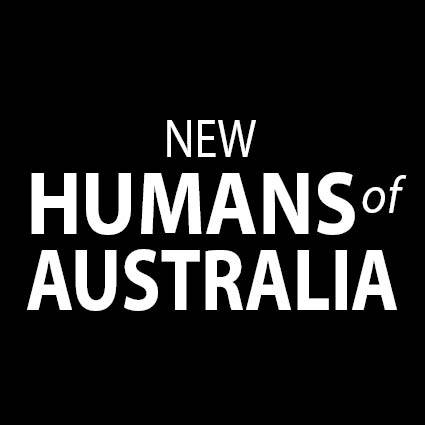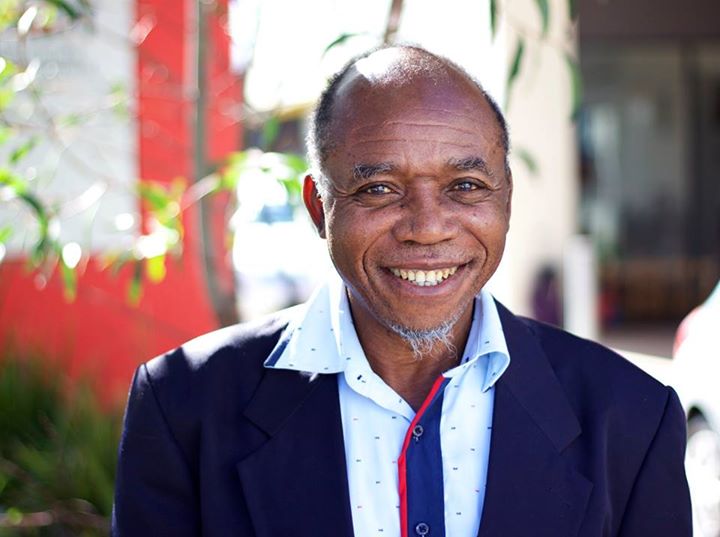(1/2) In the Congo, I was a pastor, a politician, a teacher and a trade unionist. So when my people, the Kasai tribe, started being persecuted, I was one of the most visible targets. Eventually, I had to flee, without my family, to the border of Zambia, where many Kasai people were living. One day, we were told we had 2 hours to leave and go back to our region, and this caused a great panic.
Finally, a group of us decided to cross the border at night and seek asylum. By the time the Zambian police arrived that morning, there were 400 people sitting at their station. And as I was one of only two people who spoke English, it was up to me and him to explain that we were running away because the Kasai people were being killed.
Soon, 800 people had arrived at the police station, and they kept on coming. Again, I explained the situation, but the Zambians didn’t know whether to believe me. Then, officials from the consulate of the Congo came and said, ‘These people are smugglers, not asylum seekers. The only thing to do is to organise a bus and send them back.’
We said to the Zambians, ‘Go to the Congo, see what is happening, these people are packed into the train station. Are they all smugglers?’ So they went and saw that the situation was really grave for us. But the consulate continued saying we were not asylum seekers.
Finally, the Zambians said they were going to organise buses to take us back to our country. Then we said, ‘If you send us back to the Congo, we are going to die. Why don’t you just kill us now instead of putting us in your bus?’ And we all laid down on the ground. Immediately, they realised it was serious, and they decided to move us from the border into the bush. Three days later, there were 1400 of us there. The Red Cross was there. The United High Commission was there. I hardly had time to sleep because I had to communicate with everyone!
2 months after that, we were given refugee status, and sent far away, to a camp where there were more than 300,000 refugees from many different countries. At that camp, they gave you land, they gave you tools, and you had to go in the bush, cut the grass and trees, build your house, and grow your own food. It’s difficult if you have never had to do that before. But soon, with the assistance of the Red Cross, my wife and children joined me, one by one, to the camp, and finally, our family was complete again.
I started gathering the local children to keep them out of the bush because I was worried that they might be bitten by snakes. That’s how the officials noticed me and when I told them I was a teacher, they gave me responsibility for the supervision of the education of children and general literacy for adults. I also started running a church from there. And whenever there was a problem, people called me because I was the only one who could speak English. For 7 years, I worked non stop in the camp. I hardly slept. My body was tired, but I kept on going.
Then, in 2003, my family was accepted by Australia in the UNHCR resettlement program. At first, we were sad, because we had never heard of Australia, but we soon realised we were very lucky!
Bengankuna Constantin (Costa)
The Congo (DRC)
Arrived 2004
Read part 2 on patreon now!
www.patreon.com/newhumansofaustralia
#storiesnotstereotypes #inspiration #refugees #migrants #migration #Australia #Brisbane #Congo


WE are lucky.
I love this quote from part 2- “To be a refugee is just a passage, just a transition, but it’s not the end.”
Knowing you personally means a lot. Your story and lived experience educate many of us to understand and respect the journey you and many had to make. And no one can beat your smile 🙂
I loved your story. I wish we welcomed new people into the neighborhood too.
So sorry you had to leave your country, but we support you in your stand for freedom,welcome to Australia
What a wonderful man … your kindness shows in your eyes. May the rest of your lives be amazing.
I know you didn’t know where you were coming, but welcome to Australia! We are glad you are here
Thanks for sharing your story! Happy to have you here! Welcome
Australia is a better place because you’re here, welcome!
You are an incredible human being! Australia is lucky to have such a hard working and caring person in our national community ❤️
Thank you for sharing your story of hope, connectedness, empathy and positive mindset. I’m putting your book on my Christmas wish list
What a wonderful human being. So sad that so many are driven away from their homes by cruel greedy crooks. What they have been through and yet they still survive happily, is amazing.
The stories of these survivors and the smiles on their faces are therapeutic for first world problems.
Wow. Without being at all negative towards myself, you have done more in your life than I likely ever will. Thank you, and welcome.
What a beautiful selfless man. I hope you’re getting some rest! You could only enrich our country.
This is an amazing story.
And all our leaders can say about helping people fleeing these atrocities is ‘something something boat people’. Disgusting.
Australia is very fortunate to have you and your family.
So tragic, being forced to flee from persecution in your home… your strength and communication skills saved your community! I laughed when I read that you’d never heard of Australia!!! Now, you are part of our fabric, our rich tapestry.
Thank you Costa for all you try to do for humanity … and welcome! I am glad you and your family are here.
Looking forward to reading next part of your amazing , SCAREY, journey. Australia needs people line you . Welcome ! ????♥️????
How do we fix your country so that you can return and never have future generations to endure such terrible events ????☹️ I wish you every success in the future ✨
Wow!!! What an amazing man! So glad you have come to our amazing country. You will contribute to our society as you have your communities. We are so lucky you have come here, you are going to be a great asset to all Australians!
What an incredible man you are! My heart swelled reading this x welcome, we are so lucky to have you here
We ar lucky to have you in Aus. I hope people have been good to you here.xx
Such a beautiful, generous, caring man, I hope you and your family enjoy your life in Australia